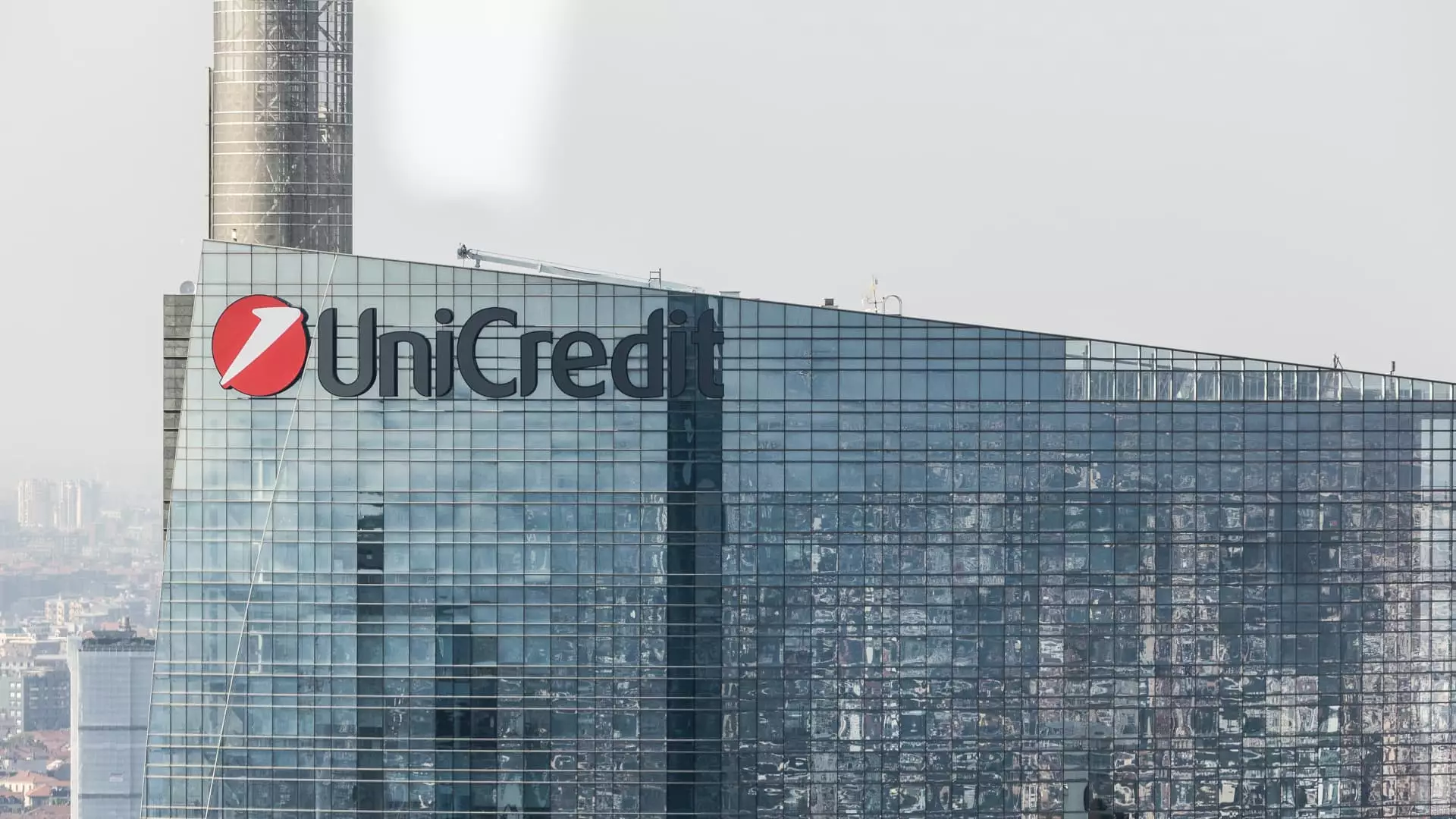In a captivating turn of events in the European banking sector, UniCredit, Italy’s second-largest bank, has announced a strategic increase in its stake in Commerzbank, elevating its potential holding to 28%. This decision, stemming from an intricate use of derivatives, indicates a robust confidence in the German lender and suggests a potentially transformative trajectory for both institutions involved. The move comes amidst a backdrop of significant industry shifts and turbulent political circumstances in Germany, raising pertinent questions about the future of banking consolidation in Europe.
As of Wednesday, UniCredit revealed a detailed breakdown of its ownership structure: a direct stake of approximately 9.5% and an additional 18.5% through derivative instruments. This represents a notable enhancement from a prior 21% stake, prompting observers to speculate on the implications of this increased financial commitment. The bank has sought approval from the European Central Bank to augment its stake up to 29.9%, further demonstrating its intention to deepen its involvement in Commerzbank’s operations.
UniCredit’s press release articulated its belief in the substantial value embedded within Commerzbank, likening the investment to a springboard for unlocking further potential within Germany’s banking sector. CEO Andrea Orcel’s parallel pursuit of an acquisition involving Banco BPM underscores a dual-pronged strategy aimed at bolstering UniCredit’s position both within Italy and in the wider European market. The assertion that this engagement with Commerzbank is purely an investment at present elucidates that while ambitions for growth abound, firm commitments to a buyout have yet to be solidified.
The backdrop to these strategic maneuvers is a politically charged environment in Germany, marked by instability following recent coalition upheavals and significant challenges facing Chancellor Olaf Scholz’s government. The German administration, currently holding a 12% stake in Commerzbank after divesting a portion of its ownership last year, has historically reacted cautiously towards foreign acquisitions in the banking sector. This backdrop complicates UniCredit’s ambitions, as government support is a crucial element for any potential merger.
Market analysts have pointed to potential synergies that could arise should UniCredit successfully merge with Commerzbank, particularly in the areas of capital markets, advisory services, payments, and trade finance. Such a merger could not only enhance operational efficiencies but also cultivate a stronger competitive position within the European financial landscape. As both banks navigate their respective strategies, the successful integration could yield significant advantages that resonate through the region’s economy.
Reactions from the stock market reflect cautious optimism, with UniCredit’s shares rising by 1.1% and Commerzbank’s stock experiencing a 3.1% increase shortly after the announcement. This uptick suggests investor enthusiasm around the potential for a successful convergence of operations, while also highlighting the speculation-infused atmosphere surrounding banks engaged in consolidation talks.
As UniCredit makes strides toward amplifying its presence in Germany through its stake in Commerzbank, all eyes will remain glued to the evolving political landscape and the banking sector’s reaction. With opportunities for growth and consolidation on the horizon, the near future holds substantial implications not only for UniCredit and Commerzbank but for the entire European banking ecosystem.

